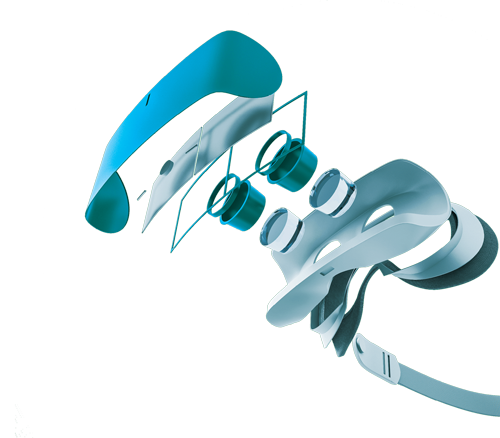Are your organization’s skills ready to support the move to agile?
As the speed with which organizations are adopting agile principles gathers pace, the skillset of today’s agile quality engineer is being forced to evolve equally rapidly. This is having the effect of elevating the role of quality engineering (QE) within organizations, as teams are tasked with taking on a more development-focused persona and building utilities for the rest of the organization to leverage, rather than focusing solely on safeguarding quality.
 In our latest World Quality Report - our annual global survey in which we reach out to 1,750 organisations in more than 30 countries to assess trends and attitudes in and around Quality Engineering & Testing - we wanted to try and gauge how these changes were impacting the QE&T department. We also wanted to evaluate the levels of readiness organisations were demonstrating to support the move to agile, and the impact this was having on skillsets.
In our latest World Quality Report - our annual global survey in which we reach out to 1,750 organisations in more than 30 countries to assess trends and attitudes in and around Quality Engineering & Testing - we wanted to try and gauge how these changes were impacting the QE&T department. We also wanted to evaluate the levels of readiness organisations were demonstrating to support the move to agile, and the impact this was having on skillsets.
Workforce transformation
Notably, two distinct approaches are being taken by quality engineering organizations - some have taken a ground-up approach, focusing first on workforce transformation, while others have taken a top-down approach, choosing to restructure their quality engineering (QE) organization from a process standpoint.
Those that are undergoing some form of workforce transformation are evolving their traditional quality skills into full-stack quality engineers. These organizations are now prioritizing development skills over traditional testing skills as the most critical tools for quality engineers. Development-focused skills like C#/Java/SQL/Python and CI/CD are all ranked in the top 5, while traditional testing skills like automation and performance tooling ranked at the bottom end of the results.
Delving further into the detail, our survey revealed that 42% of the respondents felt scripting language like C#/Java/SQL/Python is the most critical skill required by today’s quality engineer, 39% voted for CI/CD and orchestration closely followed by BDD/TDD at 38%; compared to just 28% for automation tooling and 24% for performance tooling. While skills like ETL, open-source testing solutions, Artificial Intelligence (AI), Machine Learning (ML), cloud, and tooling were considered important; the above-mentioned three stood out above the rest.
Regional differences in challenges faced
While this trend of prioritizing development skills over traditional testing skills appears to be consistent, each region appears to have its own set of unique challenges which aligns with how the QE organizations are set up today. The US and Canada face similar primary challenges, more than two-thirds of respondents confirming a general lack of supporting test processes. However, 86% in Canada confirm a lack of coding skills, with 70% of US respondents confirming a limited career path.
Meanwhile, other regions like the UK reported a lack of knowledge of agile techniques as the most common challenge (77%). This could indicate the speed at which these organizations moved into a product-aligned QE model while still trying to utilize their traditional testers.
Greater focus on speed to market
As quality engineers continue to adopt more of a developer mindset, their ability to introduce automation earlier in the lifecycle increases as does their ability to troubleshoot and even remediate defects on a limited basis. This evolution of agile practices, the integration of AI and ML, and the synergy between DevOps and agile are transforming quality engineering in infinitely futuristic ways.
In doing so, organizations are increasingly pushing to get new features and enhancements out faster, which puts an even greater focus on speed to market. This leads us to the following recommendations to increase the value from your quality automation initiatives:
- Invest in robust training programs: Organizations must adopt a build-or-buy mentality – either by seeking new talent in the market or upskilling their current workforce to meet the evolving demands of the business. Replacing the existing workforce will yield faster results but comes with the drawback of increased cost and reduced sustainability. Developing a robust training program reduces overall costs while setting your organization up to continue to adapt to the industry’s ever-changing technology and skillset requirements.
- Integrate with DevOps/DevSecOps: Forging a seamless integration with DevOps/DevSecOps practices through close collaborations can ensure smooth incorporation of quality engineering assets into CI/CD pipelines by identifying and rectifying issues promptly, enabling rapid and secure software delivery, and enhancing overall product quality and customer satisfaction.
- Modernize your QE organization: Establish lightweight capability units for test process and governance, test automation, performance engineering, test data management, and test environment management to establish enterprise frameworks and tooling platforms. This will enable a capability for all approaches, empowering individual agile aligned teams to be more self-sufficient.
Authors


World Quality Report 2023-24
The World Quality Report is the industry’s largest research study providing a comprehensive assessment of the current state of quality engineering practices from around the world, and across different industries. Over the last 15 years, it has tracked and examined the most important trends and developments in Quality Engineering & Testing, by surveying more than 1,750 senior executives globally across multiple sectors and 32 countries.
World Quality Report 2023-24
The World Quality Report is the industry’s largest research study providing a comprehensive assessment of the current state of quality engineering practices from around the world, and across different industries. Over the last 15 years, it has tracked and examined the most important trends and developments in Quality Engineering & Testing, by surveying more than 1,750 senior executives globally across multiple sectors and 32 countries.


![[Missing text '/pageicons/altmail' for 'English']](/Static/img/email.png)